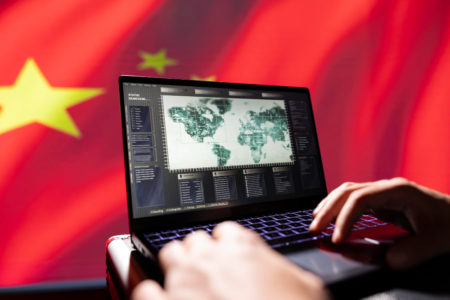International relations between the United States and China have deteriorated in recent times. As reported by the Wall Street Journal, the Asian giant has initiated a directive requiring all central government officials in the country to refrain from using iPhones.
While the order issued by the Chinese government doesn’t explicitly propose a direct ban or single out Apple, its impact is likely to affect Apple the most. The directive suggests that government officials should consider using phones made by domestic companies.
Simultaneously, China stands as Apple’s second-largest market, with 23% of its sales from the region last year. If enforced, this order would significantly impact Apple, leading to a substantial loss in its Chinese market share.
How Does this Benefit the Chinese Government?
Both countries have aimed to reduce their tech dependence on each other. American agencies have discouraged the use of platforms like TikTok, while Chinese government agencies have urged employees to avoid Tesla cars. The ban on iPhones could be seen as part of this broader initiative.
However, it goes beyond that. Apple has been steadily gaining ground in China’s smartphone market and heavily relies on the country’s labour force for manufacturing. Through this move, the Chinese government aims not only to curtail Apple’s sales and manufacturing but also to redirect these resources to local smartphone companies like Xiaomi and Huawei.
Recent months have witnessed a SaaS boom in China, following a similar model. Overseas SaaS companies faced bans, prompting local software companies to develop comparable solutions, thus dominating the SaaS market. The same strategy seems to be applied to the smartphone industry.
Nonetheless, much of this remains speculative as there’s no concrete evidence of this being a widespread internal order within the Chinese government.
Considering various countries like India and the USA are targeting Chinese tech through blanket bans or similar measures, it wouldn’t be surprising if this order is indeed enforced in the near future.













